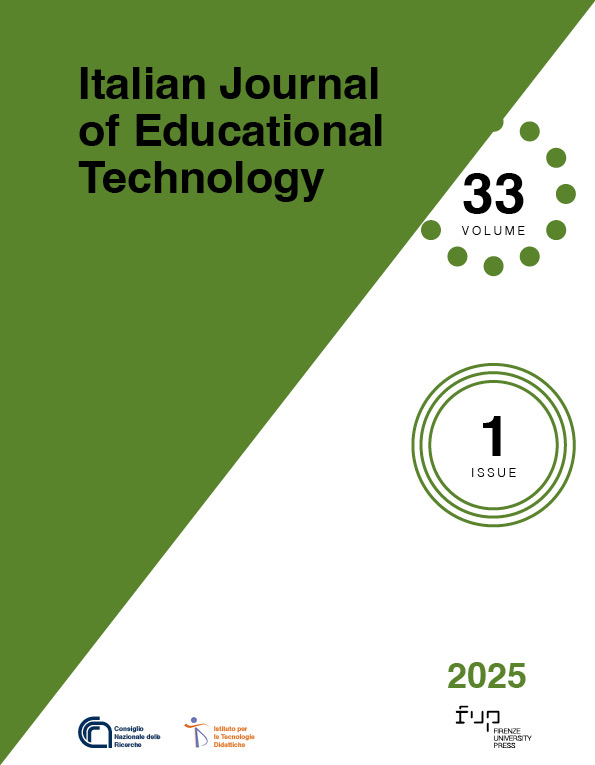Cosmo Hunters - a card game for middle-school (K12) Astronomy Education
Main Article Content
Abstract
We explored the potential of the original card game Cosmo Hunters to engage low secondary school students and promote interest in astrophysical observations and the electromagnetic spectrum.
We involved 175 Italian 13-years-old students and compared a game-based learning activity that used Cosmo Hunters with a frontal lesson with the same content. We tested the interest in the addressed scientific aspects before starting the activity, immediately after, and four weeks later. Overall, we concluded that our game-based learning approach is enjoyable and engaging. We also noticed that it enhances more efficiently the interest in the scientific aspects embedded in its game mechanics, i.e., the existence of different frequencies of the electromagnetic spectrum and the multi-frequencies observations used in astronomical research.
We concluded that Cosmo Hunters can offer a compelling alternative to standard lectures for introducing and engaging the students with the basic concept of the electromagnetic spectrum and astrophysics observations.
Article Details
Section

This work is licensed under a Creative Commons Attribution 4.0 International License.
Authors who publish with this journal agree to the following terms:
- Authors retain copyright and grant the journal right of first publication with the work simultaneously licensed under a Creative Commons CC BY 4.0 Attribution 4.0 International License.
- Authors are able to enter into separate, additional contractual arrangements for the non-exclusive distribution of the journal's published version of the work (e.g., post it to an institutional repository or publish it in a book), with an acknowledgement of its initial publication in this journal.
- Authors are permitted and encouraged to post their work online (e.g., in institutional repositories or on their website) prior to and during the submission process, as it can lead to productive exchanges, as well as earlier and greater citation of published work (See The Effect of Open Access)
References
Andreoletti, M., & Tinterri, A. (2023). Apprendere con i giochi: Esperienze di progettazione ludica. Carocci Editore.
Bayeck, R. Y. (2020). Examining board gameplay and learning: A multidisciplinary review of recent research. Simulation & Gaming, 51(4), 411–431. https://doi.org/10.1177/1046878119901286
Besson, U. (2015). Didattica della fisica. Carocci Editore.
Caillois, R. (2001). Man, play, and games. University of Illinois Press.
Cardinot, A., McCauley, V., & Fairfield, J. A. (2022). Designing physics board games: A practical guide for educators. Physics Education, 57(3), 035006. https://doi.org/10.1088/1361-6552/ac4ac4
Cardinot, A., & Fairfield, J. A. (2022). Game-based learning to engage students with physics and astronomy using a board game. In Research Anthology on Developments in Gamification and Game-Based Learning (pp. 785–801). IGI Global. https://doi.org/10.4018/978-1-6684-3710-0.ch035
Csikszentmihalyi, M., Abuhamdeh, S., & Nakamura, J. (2014). Flow. In Flow and the foundations of positive psychology: The collected works of Mihaly Csikszentmihalyi (pp. 227–238). https://doi.org/10.1007/978-94-017-9088-8_15
Deterding, S., Dixon, D., Khaled, R., & Nacke, L. (2011, September). From game design elements to gamefulness: Defining “gamification”. In Proceedings of the 15th International Academic MindTrek Conference: Envisioning Future Media Environments (pp. 9–15). https://doi.org/10.1145/2181037.2181040
Huizinga, J. (1949). Homo ludens (Vol. 3). Taylor & Francis.
Illingworth, S. (2019). Developing science tabletop games: Catan and global warming. Journal of Science Communication, 18(4). https://doi.org/10.22323/2.18040204
Inchingolo, G., Toniolo, R., Varano, S., Ligabue, A., & Ricciardi, S. (2023, October). PIXEL: Challenges of designing a professional board game for astronomy education. In Proceedings of the 17th European Conference on Game-Based Learning: ECGBL 2023. Academic Conferences and Publishing Limited. https://doi.org/10.34190/ecgbl.17.1.1481
Inchingolo, G., Toniolo, R., Varano, S., Zanazzi, A., Ligabue, A., & Ricciardi, S. (2024). A board game ludography analysis for game-based learning in astronomy, astrophysics and space science. Astronomy Education Journal, 4(1). https://doi.org/10.32374/AEJ.2024.4.1.078ra
Ligabue, A. (2023). Didattica ludica: Competenze in gioco. Edizioni Centro Studi Erickson.
Marklund, B. B., & Taylor, A. S. A. (2016). Educational games in practice: The challenges involved in conducting a game-based curriculum. Electronic Journal of e-Learning, 14(2), 122–135.
Murray, C., Dunstan, M., Heron, C., Holland, L., Palmer, S., Price, D., & Basham, M. (2022). Diamond: The game – a board game for secondary school students promoting scientific careers and experiences. Research for All, 6(1), 1–18. https://doi.org/10.14324/RFA.06.1.14
Nesti, R. (2017). Game-based learning: Gioco e progettazione ludica in educazione. Edizioni ETS.
Swertz, C. (2019). Game media literacy. In The International Encyclopedia of Media Literacy (pp. 1–8). https://doi.org/10.1002/9781118978238.ieml0075
Toniolo, R., Inchingolo, G., Casu, S., Contino, G., La Parola, V., Leoni, R., & Ricciardi, S. (2023). Pixel–Picture (Of) the Universe: An educational board game about astrophysics research world. In EDULEARN23 Proceedings (pp. 4202–4209). IATED. https://doi.org/10.21125/edulearn.2023.1117
Yoon, C. S., & Khambari, M. N. M. (2022). Design, development, and evaluation of the Robobug board game: An unplugged approach to computational thinking. International Journal of Interactive Mobile Technologies, 16(6). https://doi.org/10.3991/ijim.v16i06.26281

